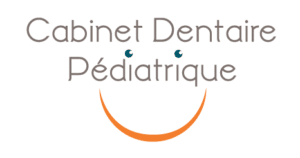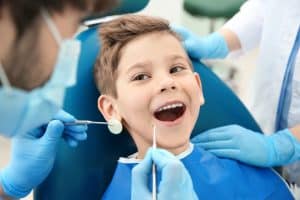Daytime bruxism is a phenomenon that affects many children. It can be caused by stress or anxiety and can have disastrous consequences on the patient's teeth and well-being.
Find out everything you need to know about this disorder as well as treatments for daytime bruxism in children.
What is daytime bruxism?
Bruxism is the medical term for grinding your teeth or clenching your jaw. It is a very common phenomenon, especially in children.
There are two types of bruxism: daytime bruxism and nighttime bruxism.
The consequences of bruxism in children
Bruxism in children, whether during the day or at night, can have harmful consequences:
- Headaches,
- Pain in the ears due to pressure from the jaws,
- Wear and tear of tooth enamel resulting in increased sensitivity to heat or cold,
- Pain during chewing,
- Etc.
If bruxism is not treated, it can also have long-term effects on a child's oral health. Teeth that have lost their enamel may begin to fracture.
The child may develop jaw joint problems if there is frequent and prolonged grinding. This can result in the worst case scenario in an inability to chew food or open the jaw.
Causes of bruxism
Bruxism in children can be caused by psychological, physical and/or genetic factors.
The most common risk factors are:
- A high level of stress,
- Consumption of beverages that contain caffeine,
- The use of certain types of medication,
- Hyperactivity,
- The presence of intestinal parasites,
- Etc.
Almost all children grind their teeth mechanically to release too much stress caused by intense emotion.
It is essential to know the cause of bruxism in order to propose an effective treatment.
Differences between daytime and nighttime bruxism
The main difference between daytime bruxism and nighttime bruxism is when the child grinds his or her teeth or clenches the jaws.
Daytime bruxism
Daytime bruxism is the grinding of teeth during the day.
The advantage of daytime bruxism is that it is easier to detect. The child can notice it himself when he is awake or the parents can detect the problem themselves.
This allows the child to become aware that he or she is clenching or grinding their teeth and stop the grinding immediately.
Nocturnal bruxism
Nocturnal bruxism is characterized as a sleep disorder. Children grind their teeth and clench their jaws unconsciously during sleep. Nocturnal bruxism is more difficult to detect.
It is usually following a visit to the dentist that symptoms are observed and bruxism is diagnosed.
Treatments for daytime bruxism
Unfortunately, there is no effective orthodontic treatment to stop bruxism.
However, it is possible to reduce bruxism through prevention methods that are associated with the cause of bruxism itself.
Whatever the cause of bruxism, it is recommended to be accompanied by a pedodontist who specializes in this type of disorder in children.
Daytime bruxism: prevention solutions
Since stress is one of the main causes of bruxism, here are some preventive methods to reduce stress:
- Reduce consumption of sugary or caffeinated foods,
- Prevent children from chewing gum, pens and pencils,
- Prevent children from biting their nails,
- Perform jaw stretching exercises,
- Teach the child relaxation and meditation methods to better manage his/her emotions,
- Limit access to screens (video games, smartphones, computers, etc.).
What solutions for a baby who grinds his teeth during the day?
Bruxism is common and usually harmless in babies. Young children tend to grind their teeth during teething.
Teeth grinding fades naturally over time. If the problem persists and the grinding is permanent, it is recommended to follow a good lifestyle and sleep habits.
The toddler needs to get enough sleep and in an environment conducive to falling asleep quickly. As with older children, it is important to avoid too much exposure to television, smartphones or any other stimulant.
Eating a healthy diet and regular meal times can also reduce stress and bruxism.


